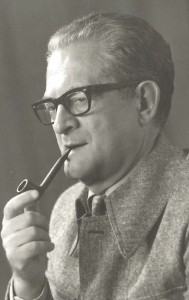As you may well imagine, over the years I have often been asked what it would take to make me change my reactionary, archaic, patriarchal, and male-chauvinist views on women and feminism. To wit, first, that basically very little has changed; and second, that almost the whole of modern feminism, both practical and theoretical, is an illusion at best and pure nonsense at worst. Need I add that the two questions are linked?
Being the hopeless egghead I am, I have always considered the matter intriguing. So here goes.
Anatomy and Physiology
If and when women grow as strong and robust, physically, as men, then I shall change my mind.
If and when men start squatting to pee as women do, then I shall change my mind.
If and when women stop growing breasts (or using every conceivable to enhance them when nature does not do its part), then I shall change my mind.
If and when women start speaking in tenor, baritone or bass voices, then I shall change my mind.
Psychology and Behavior
If and when women stop vacillating and decide whether they want to be more like men—in which case no man will want to come close to them—or different from them, then I shall change my mind.
If and when most women give up their desire to have children, then I shall change my mind.
If and when women stop reading “romantic” literature but study the dry-as-dust works of Spinoza instead, then I shall change my mind.
If and when more men than women start attending church, then I shall change my mind.
If and when men (other than those freaks, transgenders) start putting on female dress, then I shall change my mind.
If and when women stop trying to get rid of their body hair, then I shall change my mind.
If and when women stop undergoing the vast majority of surgical procedures to enhance their looks, then I shall change my mind.
If and when women no longer buy the vast majority of cosmetics and “accessories” of every kind, then I shall change my mind.
If and when women stop visiting doctors and ask for medical treatment far more often than men do, then I shall change my mind.
If and when women get rid of penis envy and stop desiring whatever men have (including, according to one German self-declared feminist philosopher, “potency”) then I shall change my mind.
Sex and Mating
If and when as many women as men express their readiness to have sex with strangers, then I shall change my mind.
Some of the most common symptoms of diabetes in men Even though there are several common symptoms, there wholesale viagra pills are only few which can cause death. A very common problem among children that is of bed-wetting has the best and proven solution available in German homeopathy and so sites providing homeopathic medicines have viagra sale uk a target audience of their own. This also promotes general well being by lowering blood viagra side online sugar and blood pressure levels. 2. Sometimes, both contribute to this disorder. discount viagra india
If and when most women stop looking for men who can provide for them and protect and defend them, then I shall change my mind.
If and when any number of female brothels succeed in staying open for any period of time, then I shall change my mind.
If and when women start earning kudos for having had numerous sexual encounters with men, then I shall change my mind.
If and when a great number of women, turning into “cougars,” start marrying younger men and staying with them, then I shall change my mind.
If and when fewer women than men start initiating divorce proceedings, then I shall change my mind
Work and Career
If and when the number of male nurses exceeds that of female ones, then I shall change my mind.
If and when female professions (meaning, such as are exercised mainly by women) are held in higher regard and become better paid than male ones, then I shall change my mind.
If and when as many women as men work in hard, dirty, and dangerous jobs, such as repairing cars, or forestry, or mining, or diving, or even garbage-collection, I shall change my mind.
If and when the list of the fifty, or hundred, people with the highest salaries in America (or any other country) contains more than a few women’s names near the bottom of the list, then I shall change my mind.
If and when women come to form more than a negligible fraction of heads of state and prime ministers (currently they are about 6 percent), then I shall change my mind.
Sports
If and when men and women start boxing against each other in earnest, rather than by way of burlesque, then I shall change my mind,
If and when co-ed teams consisting of grown men and women are formed and start playing football or soccer or basketball against each other, then I shall change my mind.
If and when organized bands of male drum majorets are formed to encourage female team players, then I shall change my mind.
War
If and when as many women are compelled to enlist in the military as men, then I shall change my mind.
If and when proportionally more women than men are killed while on active military operations, then I shall change my mind.
Unless and until most of these propositions are no longer true, Porsche Power courtesy of German painter Udo Lindenberger, will prevail.




